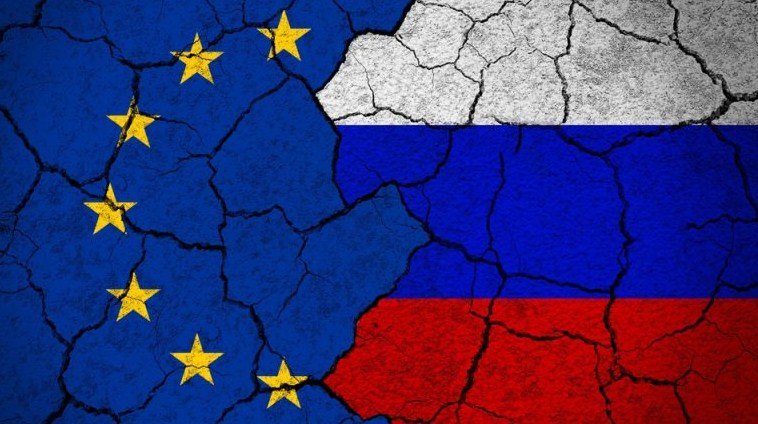The European Union has adopted its tenth package of sanctions against Russia, targeting those responsible for Russia’s continuing war of aggression against Ukraine. The new measures include further trade and financial sanctions, as well as additional listings of individuals and entities.
EU sanctions aim to pressure Russia to end its invasion of Ukraine
The EU has been imposing sanctions on Russia since 2014, following the annexation of Crimea and the non-implementation of the Minsk agreements. The sanctions aim to impose severe consequences on Russia for its actions and to effectively thwart Russia’s ability to continue its aggression.
The latest package, adopted on February 27, 2023, is a response to the gravity of the situation in Ukraine, where Russia has launched a full-scale invasion and military aggression since February 24, 2022. The EU has condemned Russia’s violation of the UN Charter and international law, and expressed its solidarity and support for Ukraine’s sovereignty and territorial integrity.

According to EU High Representative Josep Borrell, the new sanctions are intended to “give another turn of the screw to the government of the Russian Federation and those responsible for the continuation of this brutal war”.
“Putin is escalating this illegal aggression, weaponising winter, food and hunger. Russia continues to show its inhuman face with brutal missile terror against civilian targets. Today’s 10th package of sanctions targets those who are instrumental in the continuation of this brutal war. We are taking more measures, tackling the banking sector, access to dual-use technology and advanced technologies. We will continue to increase pressure on Russia – and we will do it for as long as needed, until Ukraine is liberated from the brutal Russian aggression,” Borrell said.
EU sanctions target individuals and entities involved in the war
The new package extends sanctions to around 120 new individuals and entities, as well as adding further trade and financial sanctions, including further export bans worth more than €11 billion, depriving the Russian economy of critical tech and industrial goods. It also steps up enforcement and anti-circumvention measures, including a new reporting obligation on Russian Central Bank assets.
The list of sanctioned individuals and entities includes:
- Russian decision-makers, senior government officials and military leaders complicit in the war against Ukraine, as well as proxy authorities installed by Russia in the occupied territories in Ukraine.
- Key figures involved in the kidnapping of Ukrainian children to Russia, as well as organizations and individuals, who are polluting the public space with disinformation, adding to the military warfare through information warfare.
- Individuals in Iran who are involved in the elaboration of drones and components supporting Russia’s military.
- Members and supporters of Russia’s Wagner mercenary group and its activities in other countries, such as Mali or Central African Republic.
EU sanctions restrict trade and financial transactions with Russia
The new trade and financial sanctions include:
- Additional export restrictions on sensitive dual-use and advanced technologies that contribute to Russia’s military capabilities and technological enhancement. This includes additional electronic components used in Russian weapons systems (drones, missiles, helicopters, other vehicles), as well as bans on specific rare earths and thermal cameras with military applications.
- Additional export bans on goods that can be easily redirected to be used to support the Russian war effort, such as vehicles, medical equipment, food products, fertilizers, and chemicals.
- Further restrictions on access to EU primary and secondary capital markets for Russian financial institutions and certain Russian state-owned enterprises.
- A ban on the provision of insurance and reinsurance services to the Russian government and its related entities and bodies.
- A prohibition on the participation in certain Russian energy projects, such as the Nord Stream 2 pipeline, as well as a ban on the supply of key equipment and services for the Russian oil and gas sector.
- A suspension of all EU-Russia cooperation programmes, except for those related to human rights, civil society, and cross-border cooperation.
The EU has also adopted sanctions against Belarus, in response to its involvement in the invasion of Ukraine, and Iran, in relation to the manufacture and supply of drones.
The EU has coordinated its sanctions with other partners, such as the US, Canada, and the UK, to maximise their impact and effectiveness. The EU has also called on other countries to join the sanctions regime and to refrain from any actions that could undermine it.
The EU has reiterated its readiness to engage in a meaningful dialogue with Russia, provided that Russia fully respects Ukraine’s sovereignty and territorial integrity, and implements its commitments under the Minsk agreements. The EU has also reaffirmed its unwavering support for the efforts of the Normandy format and the OSCE to find a peaceful and lasting solution to the conflict.
